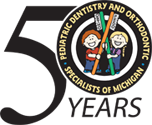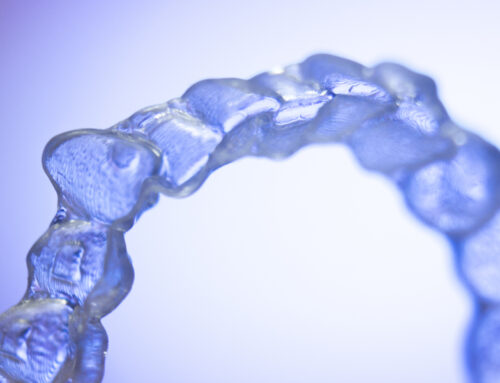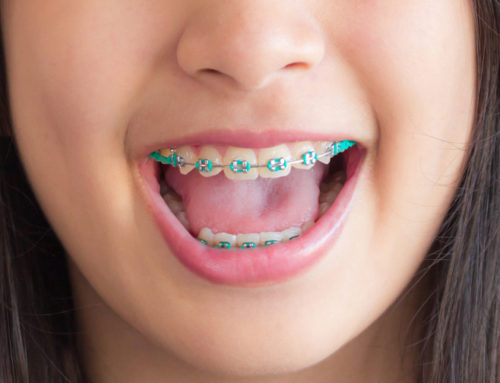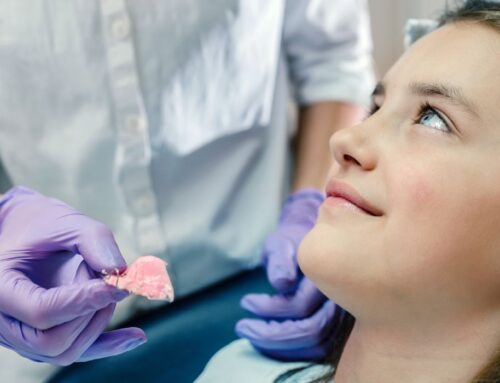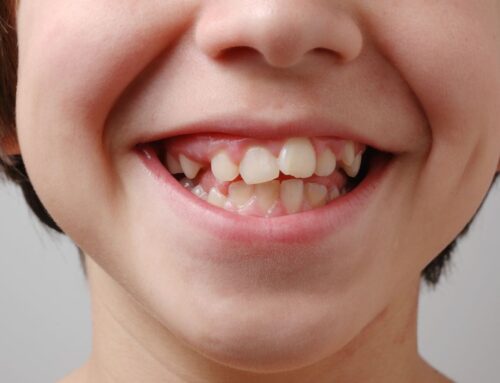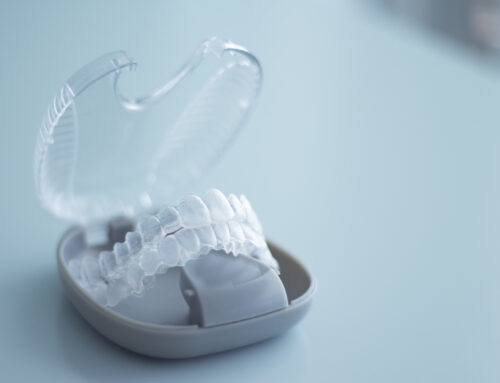The doctors and staff of Pediatric Dentistry and Orthodontic Specialists of Michigan know that having braces can be difficult, especially when it comes to the requirements to avoid certain foods and to wear rubber bands. In order to achieve efficient and excellent orthodontic outcomes, it is incredibly important to demonstrate a commitment to eating well and complying with your orthodontist’s recommendations or prescriptions.
Certain types of foods can be detrimental to the treatment process, slowing down treatment time and possibly even damaging orthodontic appliances, requiring expensive and time-consuming repairs. “There are certain food ‘groups’ that may harm braces and slow treatment time such as foods high in sugar content, foods that are normally bitten into with the front teeth, hard food, chewy candies, and even non-edible items like pens, pencils and other items that are often habitually chewed on,” said Dr. AJ Ker of Pediatric Dentistry and Orthodontic Specialists of Michigan.
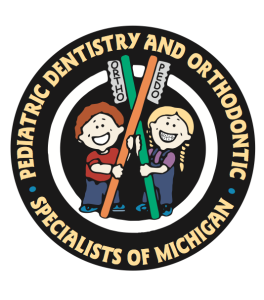 Let’s start with foods high in sugar content. These foods should be limited in general, but when people with braces do indulge, they should only consume sugary foods when they can brush or rinse their mouth immediately afterward. Liquid sugars are probably the most detrimental to teeth while braces are on because they often contain acid (think pop) or sugar (think arizona teas, Snapple, gatorade, kool-aid) and they go into every nook and cranny of the mouth – some of which are impossible to brush. The combination of acid (that can erode enamel on its own) and sugar is a one-two punch that almost guarantees the teeth will be riddled with irremovable stains after orthodontic treatment.
Let’s start with foods high in sugar content. These foods should be limited in general, but when people with braces do indulge, they should only consume sugary foods when they can brush or rinse their mouth immediately afterward. Liquid sugars are probably the most detrimental to teeth while braces are on because they often contain acid (think pop) or sugar (think arizona teas, Snapple, gatorade, kool-aid) and they go into every nook and cranny of the mouth – some of which are impossible to brush. The combination of acid (that can erode enamel on its own) and sugar is a one-two punch that almost guarantees the teeth will be riddled with irremovable stains after orthodontic treatment.
Then there’s food that people normally bite into with their front teeth, such as apples, carrots, corn on the cob and ribs. Dr. AJ Ker advises that if people enjoy such foods, they should cut them up into smaller pieces for easier chewing and swallowing. On the other hand, hard foods like popcorn, hard candies, nuts and French bread are risky because they can bend or break wires and brackets. People with braces should avoid those foods in general.
Candy is the other big no-no with braces because of the combination of stickiness and sugar. Sugar is what the cavity causing bacteria like to feast upon that generate white spots and cavities. But, certain kinds of candy like Starburst and taffy should also be avoided because they are both high in sugar content and also can pull the orthodontic appliances away from a person’s teeth. If that happens, the entire treatment process is slowed. Dr. AJ likes to think of a broken brace like a man overboard on a boat or a bicycle chain that comes loose from the crank mechanism – both situations indicate a disruption in the travel process from point A (the day the braces go on) to point B (the day the braces come off).
Rubber bands or elastics are also very important in the treatment process. The elastics that go from the upper teeth to the lower teeth generate a tug of war between the upper and lower sets of teeth to create a proper bite. Rubber bands are usually worn all the time, although orthodontic patients are to remove and replace them when brushing, flossing, or eating — although bands can stay in when eating if a patient desires. Dr. Ari Thanasas informs that “It’s important to stay consistent with the use of rubber bands because otherwise, the body never gets used to the applied forces and the discomfort they can cause will not decrease while the bite will not be corrected which prolongs treatment and may compromise the quality of the orthodontic result.”
About Pediatric Dentistry and Orthodontic Specialists of Michigan, the offices of Drs. Delaney, Plunkett, Ralstrom, Makowski, Thanasas, Ker, and Associates
Pediatric Dentistry and Orthodontic Specialists of Michigan have specialized in pediatric dentistry and orthodontics since 1968. Our family-friendly office gives patients and families a more comfortable and consistent experience with dentistry from the very beginning. The pediatric dentists treat children from newborn to 18 years of age while our orthodontists provide care for both children and adults, including being an Invisalign preferred provider. The ability to treat all special needs patients reaches beyond our facility, which has treatment rooms available for children who require additional privacy. Valued hospital affiliations allow dental services to be performed at DMC Children’s Hospital when needed.
Pediatric Dentistry and Orthodontic Specialists of Michigan
39400 Garfield Rd., Suite 200
Clinton Township, MI 48038
586-286-0700
www.mychildsteeth.com
